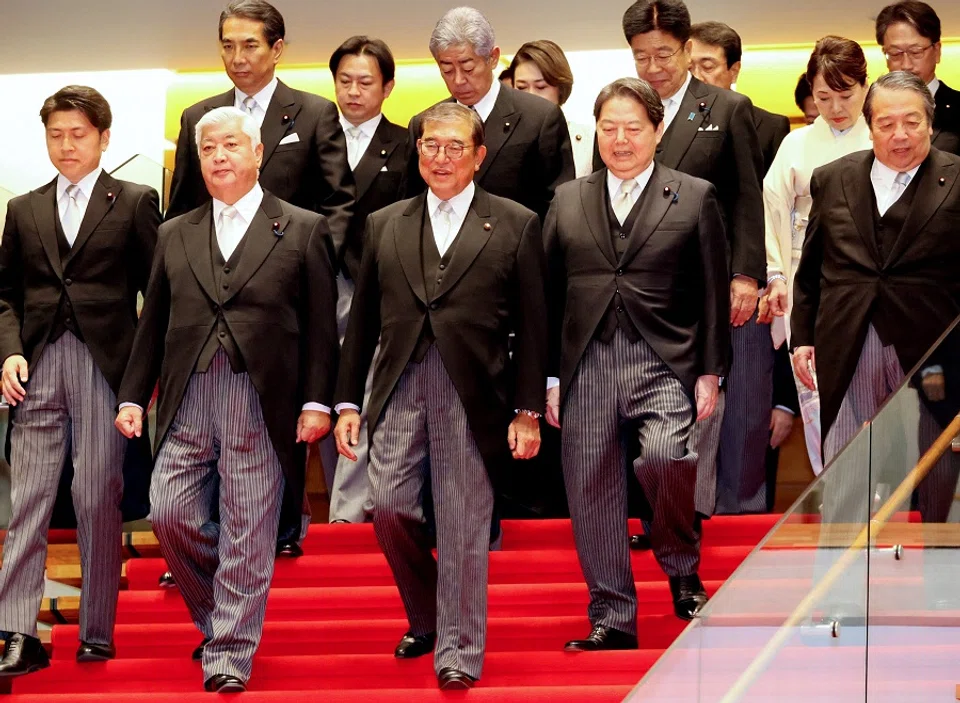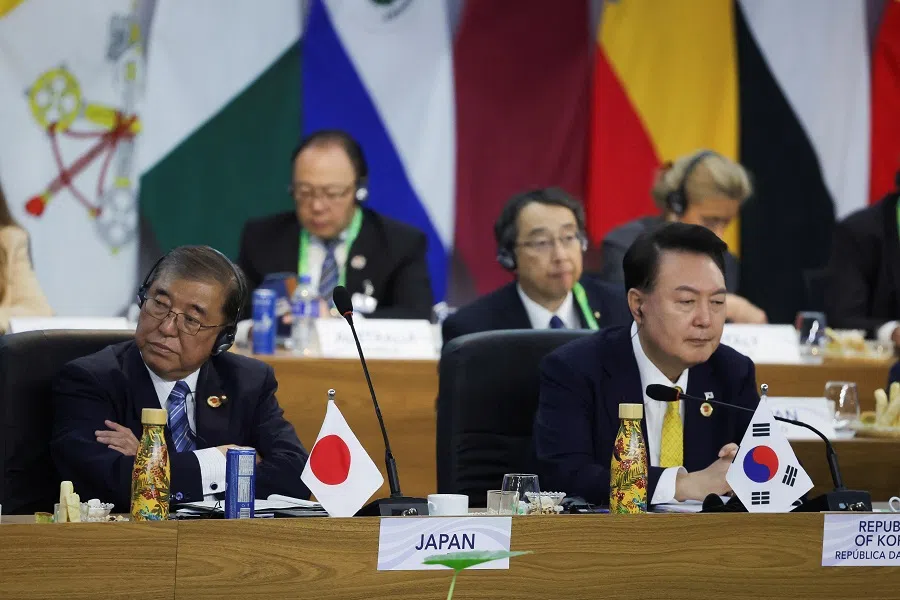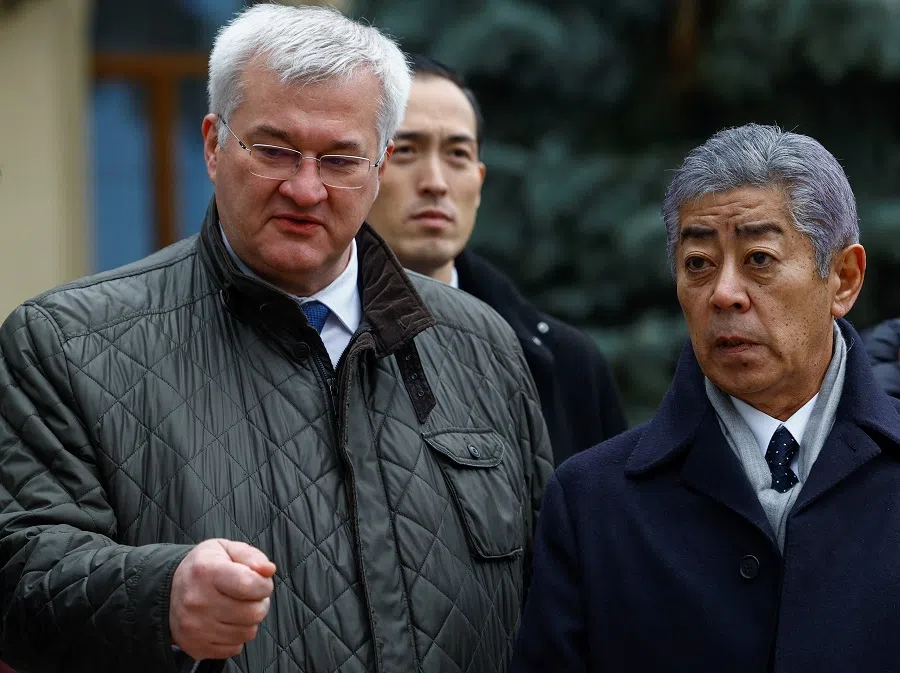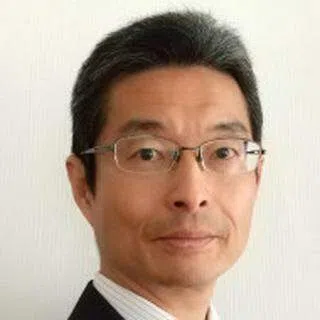A divided Japan faces a divided world: Ishiba’s dual challenge
Japan under Prime Minister Shigeru Ishiba faces a resurgent Trump, escalating US-China tensions and a weakened domestic base after election losses. These hurdles threaten Ishiba’s foreign policy agenda and the Indo-Pacific’s stability. Japanese academic Masafumi Iida analyses the situation.

On 1 October 2024, Shigeru Ishiba, the new president of the Liberal Democratic Party (LDP), was appointed prime minister by the National Diet, succeeding the Kishida administration.
During the LDP presidential election, Ishiba proposed the novel idea of creating an Asian NATO. However, his administration will largely continue the security policies of the Kishida administration. This means maintaining the Free and Open Indo-Pacific (FOIP) vision and upholding an international order based on the rule of law, while taking a leading role in promoting global peace and stability.
In line with this policy, the Ishiba administration is strengthening security cooperation with the US under the Japan-US alliance. In a telephone conversation with US President Joe Biden the day after his inauguration, Prime Minister Ishiba conveyed that strengthening the Japan-US alliance is his administration’s top priority in foreign and security policy. He affirmed that Japan and the US will work closely as partners at the core of a free and open international order. The two leaders also agreed to further enhance the deterrence and response capabilities of the alliance and develop networks with like-minded countries.
Focusing on regional partners
The Ishiba administration is also promoting cooperation with regional partner countries to realise FOIP. At the APEC Economic Leaders’ Meeting in Peru in November, Prime Minister Ishiba met with Malaysian Prime Minister Anwar Ibrahim, Vietnamese President Luong Cuong and Indonesian President Prabowo Subianto, and expressed his intention to deepen security cooperation. In a meeting with South Korean President Yoon Suk-yeol, they agreed to strengthen cooperation in dealing with North Korea and to comprehensively advance Japan-South Korea relations in areas such as politics, security, economy and culture.
Ishiba and Xi agreed to gradually lift China’s import restrictions on Japanese aquatic products, and to advance concrete cooperation in areas such as the green economy...
Regarding diplomacy with China, Ishiba stated in his policy speech to the Diet that “with China, we will comprehensively promote a mutually beneficial relationship based on common strategic interests and build a track record of close communication at all possible levels”, and that Japan will “strongly urge China to act responsibly” and aim to build a “constructive and stable Japan-China relationship” through cooperation on common issues.

Ishiba, who met with Chinese President Xi Jinping in Peru, conveyed serious concerns about the situation in the East China Sea, the intensification of Chinese military activities, the situation in the South China Sea, Hong Kong, Xinjiang Uyghur Autonomous Region, and other areas, and stressed the importance of peace and stability across the Taiwan Strait. At the same time, Ishiba and Xi agreed to gradually lift China’s import restrictions on Japanese aquatic products, and to advance concrete cooperation in areas such as the green economy, including environment and energy conservation, and medical, nursing and health care.
... the Ishiba administration’s foreign and security policy can be said to be a countermeasure against challenges to the existing international order by China, Russia, North Korea and others by strengthening cooperation with the US and like-minded countries...
Preserving the international order
The Ishiba administration also made clear its intention to work hard to maintain a rules-based international order. Foreign Minister Takeshi Iwaya visited Ukraine on 16 November and met with President Volodymyr Zelenskyy, Prime Minister Denys Shmyhal, and Foreign Minister Andrii Sybiha.
Iwaya stated that there has been no change in Japan’s stance of standing with Ukraine, and that Japan will work together with Ukraine to bring about a just and lasting peace.
Defense Minister Gen Nakatani attended the ASEAN Defense Ministers’ Meeting Plus in Laos in November, where he held the first defence ministerial meeting among the five countries of Japan, the US, Australia, the Philippines and South Korea. The five defence ministers exchanged views on the security environment in the East China Sea, the South China Sea, and the Korean Peninsula, and agreed to strengthen concrete cooperation among the five countries.

As mentioned above, the Ishiba administration’s foreign and security policy can be said to be a countermeasure against challenges to the existing international order by China, Russia, North Korea and others by strengthening cooperation with the US and like-minded countries to maintain the rules-based international order under the vision of the FOIP. The Ishiba administration aims to continue the foreign and security policies that have been in place since the Abe administration, but it is likely to face two difficulties in the future.
If the government fails to broaden its appeal before the upper house election next July, it will become increasingly challenging to implement key foreign and security policies focused on international peace and stability.
Two challenges
The first difficulty is the emergence of the second Trump administration in the US. President-elect Trump has taken a hardline stance against China, raising the possibility of a tougher confrontation between the US and China.
If China adopts a hardline stance amid US-China tensions, Japan may find it challenging to establish a “constructive and stable Japan-China relationship” through dialogue. Moreover, if the Trump administration sticks to its “America First” policy, cooperation with allies and partner countries will be negatively affected.
The second difficulty is the weakening of the administration’s political base. In the lower house elections on 27 October, the LDP suffered a major defeat, and even with its coalition partner Komeito, it failed to win a majority of seats. Although the second Ishiba government was inaugurated on 11 November, it became a minority party in the lower house, and the government’s foundation is fragile.
If the government fails to broaden its appeal before the upper house election next July, it will become increasingly challenging to implement key foreign and security policies focused on international peace and stability.
Whether or not the Ishiba administration can overcome these difficulties will have a significant impact on future peace and stability in the Indo-Pacific.





